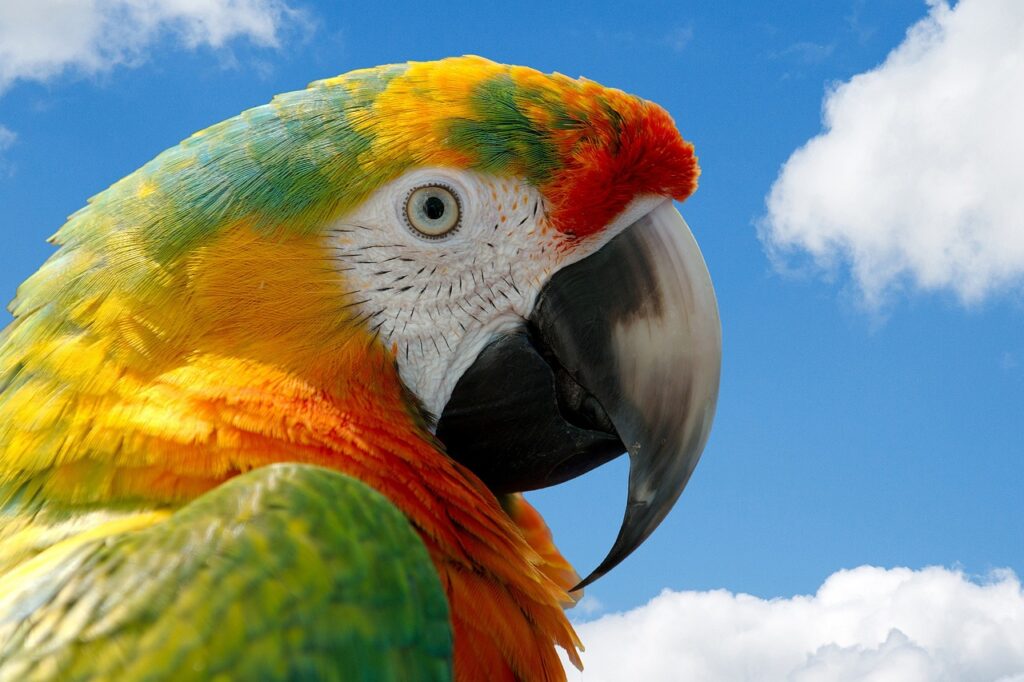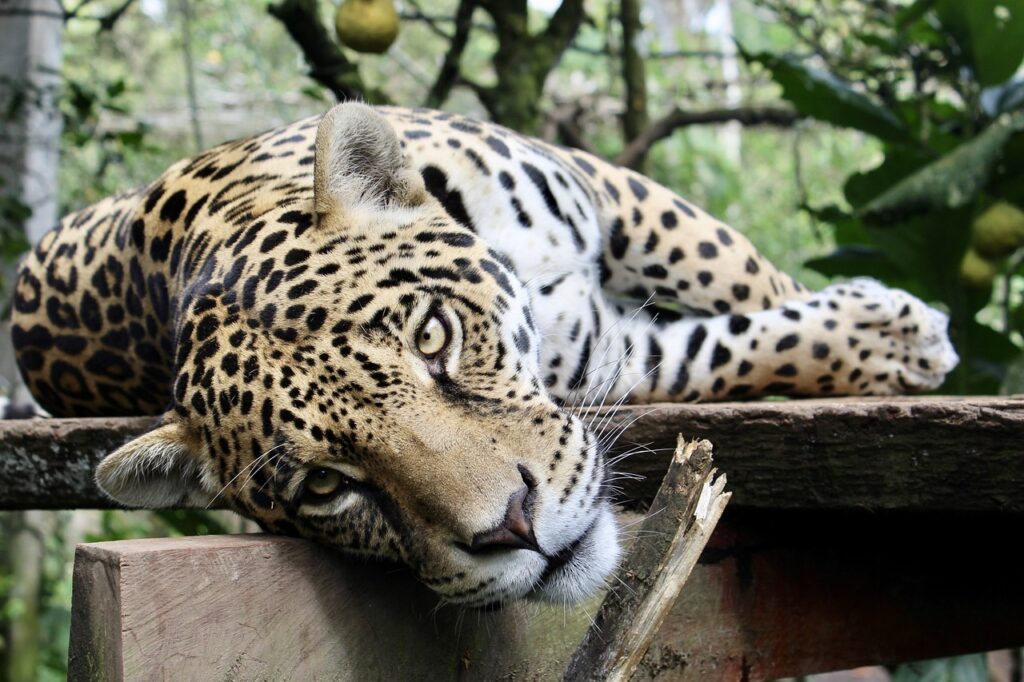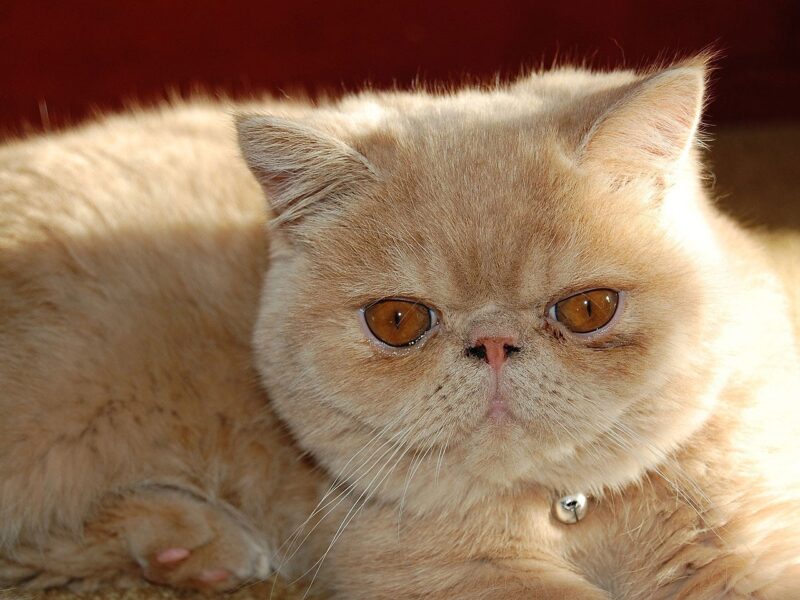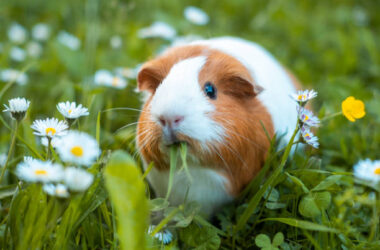Welcome to the captivating world of “Exotic Pets: A Look into Unique and Unusual Animal Companions.” In a world where traditional dogs and cats have long held the title of man’s best friend, a growing number of individuals are venturing into the realm of the extraordinary, choosing animal companions that break free from the ordinary.
In this exploration, we will delve into the extraordinary stories of people who have chosen to open their hearts and homes to creatures that range from the diminutive to the enormous, from the feathered to the scaled, and from the aquatic to the arboreal. We’ll uncover the motivations behind their unique choices and gain insight into the joys and challenges of nurturing these remarkable companions.
Join us as we embark on a journey through the curious and captivating world of exotic pets, where each creature tells a tale of wonder and adventure. From the intriguing reptiles and amphibians that slither and leap, to the enchanting birds that sing and soar, and the mysterious mammals that prowl and prance, our quest to understand the allure of these extraordinary animals will take us to the heart of what it means to form a connection with the wild and the unconventional.

So, fasten your seatbelts and get ready to explore the world of “Exotic Pets: A Look into Unique and Unusual Animal Companions.” Prepare to be amazed, inspired, and perhaps even tempted to embark on your own journey into the realm of exotic pet ownership.
Understanding the appeal of exotic pets
Understanding the appeal of exotic pets requires a multifaceted exploration of human nature, our relationship with the animal kingdom, and our innate sense of wonder. At its core, the desire to keep exotic animals as pets is rooted in our deep-seated curiosity about the natural world. It represents a longing to connect with the extraordinary, to bridge the gap between our everyday lives and the captivating mysteries of the animal kingdom. Exotic pets offer a unique opportunity to bring a slice of the wild into our homes, allowing us to witness and appreciate the beauty, diversity, and complexity of life on Earth up close.
Furthermore, the appeal of exotic pets can be linked to a desire for individuality and self-expression. While the world of traditional pet ownership is rich and rewarding, the choice to care for an exotic companion sets one apart from the crowd. It reflects a distinctive personality and a willingness to embrace the unconventional. Exotic pet enthusiasts often relish the opportunity to educate others about their unique animal companions, fostering a sense of community and shared passion among like-minded individuals who appreciate the extraordinary.
Beyond the allure of novelty, many exotic pet owners are drawn to the challenges and responsibilities that come with caring for these animals. The commitment required to provide proper husbandry, nutrition, and medical care for exotic pets can be substantial. This commitment often results in a deep bond between owner and pet, forged through the shared experiences of overcoming obstacles and nurturing a creature that may have very specific and demanding needs.
It’s also important to acknowledge the therapeutic value of exotic pets. For some, the presence of an unusual and exotic companion can provide solace, reduce stress, and offer a sense of purpose. The daily routines and interactions with these unique animals can be profoundly rewarding, offering emotional support and a sense of connection that is deeply meaningful.

However, it’s essential to tread carefully in the world of exotic pet ownership. The appeal of these animals must be balanced with a commitment to ethical and responsible care. The exotic pet trade can have detrimental effects on wildlife populations and ecosystems, leading to the endangerment of species and the depletion of natural habitats. Therefore, understanding the appeal of exotic pets should also include a critical examination of the ethical and conservation implications of this practice, as well as the importance of supporting efforts to protect and preserve these extraordinary creatures in their natural environments.
In conclusion, the appeal of exotic pets is a complex and multifaceted phenomenon that reflects our innate curiosity, desire for individuality, and a deep connection to the natural world. While exotic pet ownership can be a source of wonder and joy, it also comes with significant responsibilities and ethical considerations. Exploring this fascination with the extraordinary helps us better understand the intricate relationship between humans and the diverse creatures that share our planet.
Popular and unique exotic pets
Popular and unique exotic pets encompass a captivating array of creatures that span the spectrum of the animal kingdom. Among the most popular of these are reptiles, such as the bearded dragon and ball python. These scaly companions have gained a devoted following due to their manageable size, ease of care, and striking appearances. Bearded dragons, with their gentle demeanor and endearing personalities, have become cherished members of many households. Similarly, the ball python’s docile nature and mesmerizing color patterns make it a favorite among snake enthusiasts. These reptiles offer a glimpse into the intriguing world of cold-blooded companionship and have brought the allure of the desert and the rainforest into homes around the world.
The Benefits of Owning a Pet: From Health to Happiness
Birds, too, have a unique place in the world of exotic pets. Beyond the traditional parrots and budgerigars, avian enthusiasts have sought out more unusual feathered friends, such as the elegant cockatiel and the charming lovebird. These smaller parrot species captivate with their intelligence, sociability, and striking plumage. Their ability to mimic sounds and interact with their human caretakers has endeared them to those seeking a feathered companion that offers both entertainment and companionship. The appeal of these avian oddities lies in their ability to forge deep bonds with their human counterparts, enriching lives with their vibrant personalities.
For those who yearn for a more terrestrial companion, the world of exotic mammals offers a host of intriguing options. The sugar glider, with its endearing appearance and gliding abilities, has garnered a passionate following among pet enthusiasts. These tiny marsupials thrive in social settings, forming tight-knit bonds with their human caregivers. Similarly, the hedgehog, with its distinctive quills and inquisitive nature, has become a beloved addition to many households. These unique mammals bring a sense of wonder to the world of pet ownership, showcasing the diversity of life on our planet.
In the aquatic realm, the allure of unique exotic pets extends to creatures like the axolotl, a type of salamander that retains its aquatic larval form throughout its life. These captivating amphibians have become popular due to their otherworldly appearance and low-maintenance aquatic habitat. The axolotl’s ability to regenerate lost body parts adds to its mystique, making it a fascinating subject of study and admiration for aquatic enthusiasts.
While the world of popular and unique exotic pets offers a tantalizing array of choices, it is essential to emphasize the importance of responsible pet ownership. The needs and requirements of these animals can be quite specific, and potential owners must commit to providing proper care, nutrition, and habitat. Additionally, ethical considerations must always be at the forefront, with awareness of the legal regulations and conservation status of the species in question. With proper care and a dedication to responsible ownership, these exotic pets can enrich our lives and deepen our appreciation for the remarkable diversity of life on Earth.
Caring for exotic pets responsibly
Caring for exotic pets responsibly is a multifaceted commitment that demands both dedication and a deep understanding of the unique needs of these extraordinary creatures. One of the fundamental aspects of responsible exotic pet ownership is education. Prospective exotic pet owners must invest time in researching the species they intend to bring into their homes. Understanding their dietary requirements, environmental needs, social behaviors, and potential health issues is crucial. This knowledge equips caregivers to create an appropriate and enriching environment for their exotic companions.
Another critical component of responsible care is providing proper housing and habitat. Exotic pets often hail from diverse ecosystems, and replicating their natural conditions to the best extent possible is essential for their well-being. For reptiles, this may involve maintaining specific temperature and humidity levels in their enclosures, while avian companions require adequately sized cages and stimulation to prevent boredom and behavioral issues. Mammalian exotic pets, such as sugar gliders or hedgehogs, necessitate specialized enclosures with safe and comfortable bedding materials.
Nutrition is a cornerstone of responsible care. Many exotic pets have highly specialized diets that must be meticulously catered to. From insects and fruits for some reptiles to nectar and pollen for certain birds, providing the correct food is essential for their health and longevity. Maintaining a balanced diet, including supplementation when necessary, is vital to ensure their nutritional needs are met.
Regular veterinary care is equally imperative for exotic pets. Finding a veterinarian with expertise in exotic animal medicine is essential to address health concerns and provide preventative care. Exotic pets may be more prone to certain diseases or conditions, making routine check-ups and access to specialized medical care critical components of responsible ownership.

Furthermore, responsible exotic pet ownership involves considering the ethical implications of keeping certain species as pets. Some animals, even if legally available, may be better suited to conservation efforts or maintained in their natural habitats. It is essential to support efforts aimed at protecting these creatures in their native environments and adhere to all local and international regulations regarding their trade and ownership.
Last but not least, responsible care extends to the social and emotional needs of exotic pets. Many of these animals thrive in the presence of companions or human interaction. Ensuring that they receive adequate mental stimulation, socialization, and opportunities for physical exercise is crucial for their overall well-being.
In conclusion, caring for exotic pets responsibly is a multifaceted endeavor that demands knowledge, commitment, and ethical considerations. It requires providing appropriate housing, nutrition, healthcare, and social interaction while respecting the natural behaviors and conservation status of the species. Responsible exotic pet ownership not only enriches the lives of these remarkable creatures but also contributes to the preservation of our planet’s biodiversity and the responsible stewardship of our natural world.
The ethical considerations of owning exotic pets
The ethical considerations of owning exotic pets are a topic of paramount importance in today’s society. While the allure of these unique and captivating creatures is undeniable, the moral implications of keeping exotic animals as pets raise several critical questions. First and foremost is the issue of conservation. Many exotic species face threats to their survival in the wild, such as habitat loss and poaching. The demand for these animals in the pet trade can exacerbate these threats, leading to further endangerment and even extinction. Ethical pet ownership entails a deep respect for the conservation status of the species and a commitment to not contribute to their decline.
Additionally, the welfare of the animals themselves is a central ethical concern. Exotic pets often have complex and specific needs that can be challenging to meet in a domestic setting. The habitats, diets, and social structures of these animals are finely tuned to their natural environments. Confined to captivity, they may suffer from stress, boredom, and health issues if their needs are not adequately addressed. It is the ethical responsibility of exotic pet owners to provide the highest standard of care, which may entail substantial investments of time, effort, and resources.
Moreover, the exotic pet trade often involves practices that raise ethical red flags. The capture and transportation of animals from their natural habitats can result in immense suffering and mortality rates. Additionally, some animals are bred in captivity under substandard conditions, leading to genetic and health problems. Responsible pet owners should prioritize sourcing animals from reputable and ethical breeders or adopting from rescue organizations that prioritize animal welfare over profit.
Another ethical dimension concerns the potential risks exotic pets may pose to human health and safety.Furthermore, certain species, if not properly handled or contained, may pose physical risks to their owners or the broader community. Ethical ownership necessitates responsible measures to mitigate these risks, including proper quarantine, hygiene, and safety precautions.

Lastly, there’s the ethical issue of public perception and education. Owners of exotic pets must consider the impact of their choices on public perception and awareness. It is essential to promote responsible pet ownership and conservation values, as well as educate others about the ethical complexities surrounding exotic pets. Being an advocate for the ethical treatment of these animals and their conservation in the wild is an integral part of owning exotic pets responsibly.
In conclusion, the ethical considerations of owning exotic pets encompass a range of complex and interconnected issues. Responsible ownership entails a deep respect for the welfare and conservation status of the animals, a commitment to ethical sourcing and care, and an active role in educating others about the ethical dimensions of exotic pet ownership. Striking a balance between the allure of these extraordinary creatures and the ethical responsibilities that come with their care is essential to ensure their well-being and the preservation of our planet’s biodiversity.
The future of exotic pet ownership
The future of exotic pet ownership stands at a crossroads, marked by a growing awareness of ethical, conservation, and welfare concerns, as well as the enduring allure of unique and unusual animal companions. As our understanding of the complexities surrounding exotic pets deepens, it is likely that we will witness a shift towards more responsible ownership practices. This shift may include stricter regulations, improved education, and a heightened emphasis on ethical considerations in acquiring and caring for exotic animals.
One significant aspect of the future of exotic pet ownership is the role of legislation and regulation. In response to the ethical and conservation concerns surrounding the exotic pet trade, many governments around the world have enacted stricter regulations on the ownership, trade, and importation of exotic animals. The future may see further refinement and enforcement of these regulations, aimed at safeguarding both animal welfare and wild populations. Such measures could include mandatory permits, licensing, and documentation of the sources of exotic pets, as well as stringent animal welfare standards.
Education and public awareness will also play a crucial role in shaping the future of exotic pet ownership. As information becomes more readily available, prospective owners will have greater access to knowledge about the needs, challenges, and ethical considerations of caring for exotic animals. This awareness can lead to more responsible decision-making and may encourage individuals to opt for more traditional pets or support conservation efforts instead of keeping exotic species as pets. Organizations and advocacy groups are likely to continue their efforts to educate the public about these issues and promote responsible ownership.
Moreover, technological advancements may revolutionize the way we interact with exotic animals. Virtual reality and augmented reality experiences can provide people with immersive encounters and educational opportunities without the need for physical ownership. This could reduce the demand for keeping exotic pets while still allowing individuals to appreciate and learn about these creatures.
Conservation initiatives and habitat preservation efforts will also shape the future of exotic pet ownership. Recognizing the link between the pet trade and the decline of wild populations, conservation organizations may intensify their efforts to protect the habitats of exotic species and discourage their capture and sale. Supporting these initiatives can provide individuals with alternative ways to contribute to the conservation of these remarkable animals without keeping them as pets.
In conclusion, the future of exotic pet ownership is likely to be characterized by a delicate balance between our fascination with unique creatures and our growing awareness of the ethical, conservation, and welfare concerns associated with their ownership. Responsible ownership, supported by well-informed decisions, ethical sourcing, and adherence to regulations, will play a pivotal role in ensuring the well-being of exotic animals and the preservation of their natural habitats. As society continues to evolve in its understanding and approach to these complex issues, the future of exotic pet ownership holds the potential for positive change that benefits both humans and the extraordinary creatures with whom we share our.
Conclusion
In conclusion, “Exotic Pets: A Look into Unique and Unusual Animal Companions” has taken us on a captivating journey into the world of extraordinary creatures that defy convention and challenge our understanding of pet ownership. We’ve explored the appeal of exotic pets, discovering the profound connections and unique joys they bring to the lives of those who choose to care for them. We’ve also delved into the responsibilities and ethical considerations that come with exotic pet ownership, emphasizing the importance of responsible care, conservation, and education.
As we contemplate the future of exotic pet ownership, we stand at a critical juncture where our growing awareness of ethical, conservation, and welfare concerns must guide our decisions. It is a future that may see stricter regulations, improved education, and a heightened emphasis on ethical considerations in acquiring and caring for exotic animals. It is a future where technological advancements, conservation initiatives, and habitat preservation efforts can provide alternative ways to appreciate and protect these remarkable creatures without keeping them as pets.
Ultimately, the world of exotic pets reminds us of the profound connection between humans and the extraordinary diversity of life on Earth. It challenges us to balance our fascination with these unique creatures with our responsibility to ensure their well-being and the preservation of their natural habitats. In this delicate equilibrium, we find an opportunity not only to enrich our lives with the wonder of the wild but also to become advocates for the ethical treatment and conservation of our planet’s most exceptional inhabitants.








